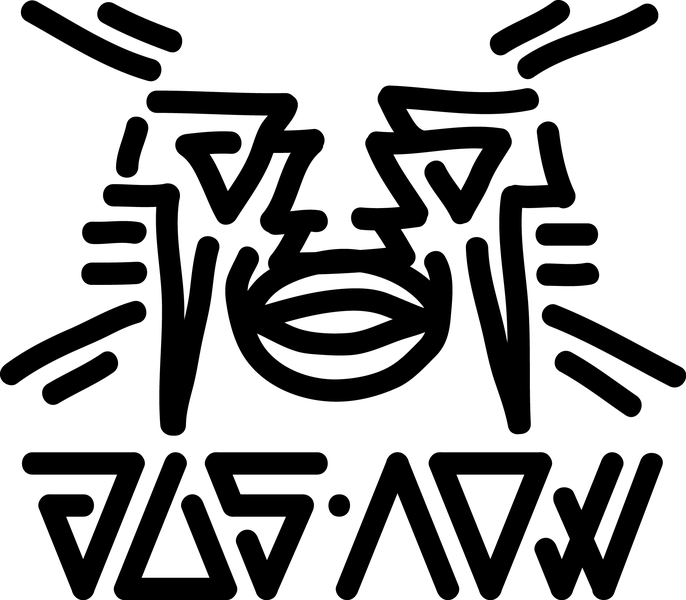LU: Your music isn’t strictly soca. What would you call it?
LAZA: That’s a common question we get. Our music is widely variant due to our different cultural backgrounds. We grew up listening to all different things like dancehall, Michael Jackson, soul, world music, tribal music. Roots music is a big part of what we do. If you want to define it in terms of keywords, I think folk music is very key. It’s definitely a kind of callaloo. It just has to be things that we really believe in. We have to understand it, so we can do it justice. On our SoundCloud, it’s listed under “sub soca.” If you listen to our stuff, the BPMs are never the same, there’s a whole lot more that we’re into and [you will] hear that more and more. We have a offering coming really soon, it’s a mixtape and its very experimental. It’s not what we’ve been doing for the past three years. We went to India and played at a folk festival and we were the Trini/UK representatives. We contextualized the music part of that in the mixtape you will be hearing soon.
LU: Recently soca has been heavily influenced by EDM. Did that play a role with you guys getting into soca?
LAZA: Soca is basically dance music, and it’s been like that since the late 90’s. Sheldon “$hel $hok” Benjamin, who was also my mentor before he passed away, made a string of hits doing dance music back in the 90’s before people jumped on the whole EDM wagon. On my part it was more of an inevitability. I grew up the son of a Trinidad and Tobago ambassador. When I was a kid, people like 3Canal, Machel Montano, Ras Shorty I and Superblue would visit the residence and I got to jam with them.
Sam: I suppose the current EDM trend in soca is probably less of what we love about soca. We’re into more of the roots, rhythm, steelpan kind of sound of soca even though our music incorporates the electronic production. We’re not fans of brash synth sounds. It’s not really what we’re about but at the same time when you’re producing for other people you kind of have to incorporate it in a bit. We try to do it in a classic, rootsy way. What we’re really about is bringing more drums and bass into soca, a lot of tracks could squeeze a lot more bass in there. Especially me coming from England, we love bass in music. Music that we can feel in our stomach.
LU: Bunji has definitely evolved as an artist over the years, and I would say you guys have been pretty instrumental in the transition from where he was to where he is now. Would you say he has reached his potential?
LAZA: Bunji is a man with constant evolving potential in soca. He has shown that in his career, [since] he started with “Send Them Rhythm Crazy,” which was his first soca song because he was a dancehall artist [first]. He made that decision to jump into soca. He’s constantly been evolving in a upward way. When he won Soca Monarch, I don’t think people in the industry was expecting that. He keeps evolving and that has a huge part to play in his success. When you say reached his potential? Nah. He’s just now getting started. To have as big of an artist as Bunji to be part of Jus Now’s evolution, it’s amazing to have the support of someone like that. He’s all about different. He’s one for changing things and evolving soca music.
LU: How did you guys start working with Bunji?
LAZA: Trinidad is a small place. I’ve known Bunji for years. When I moved back to Trinidad from the States, I started working with people like Maximus Dan and 3canal and a lot of Rapso people, roosty kind of guys, Treason (3 Sun). I made a song with [Bunji] way back. And it was a long-standing thing, seeing him at fetes like ”Yeah I hadda link yuh” but it was never the right time. Then when I was with Sam about three years ago he sent the a Capella for “Tun Up.” We were working on a Beenie Man single, “D Way Yuh Wine” and we actually had him between takes sing Bunji’s song “Tun Up.”





